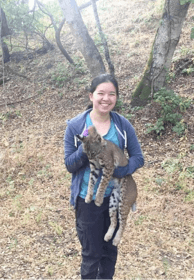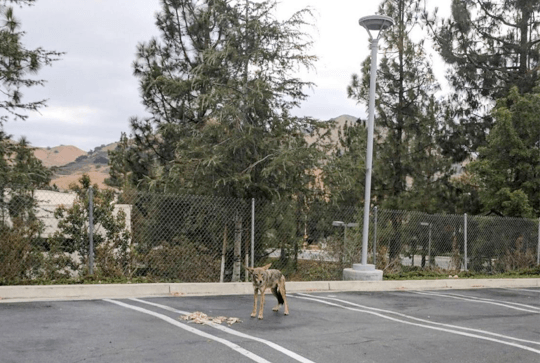
Awardee: Amanda Tokoyama
Department: Ecology and Evolutionary Biology
After pursing research in ecological parasitology as an undergraduate at UCSB, I went on to work for the National Park Service where I developed a passion for studying behavioral ecology in wildlife. Now, as a member of the Lloyd-Smith lab at UCLA, I have melded these interests into my current research project: identifying the drivers of parasitism in coyotes across the Santa Monica Mountains and greater LA area. Using a variety of techniques, I am working to determine which gastrointestinal parasites are present and how coyote diet, movement, and behavior affect the density and diversity of the parasites they carry.
Project Description:
Coyotes (Canis latrans) can be highly adaptive to densely populated urban environments due to their opportunistic nature. Consequently, humans, domestic animals, and coyotes cohabiting cities are at an increased risk for zoonotic disease transmission. Using DNA metabarcoding of fecal samples, we are attempting to assess the diversity of gastrointestinal parasites and pathogens that coyotes in Los Angeles carry and could potentially transmit. Additionally, we are using this technique to determine coyote prey composition which will allow us to better understand the drivers of parasitism and the effects of rapid and expanding urbanization on the disease dynamics in this population.

